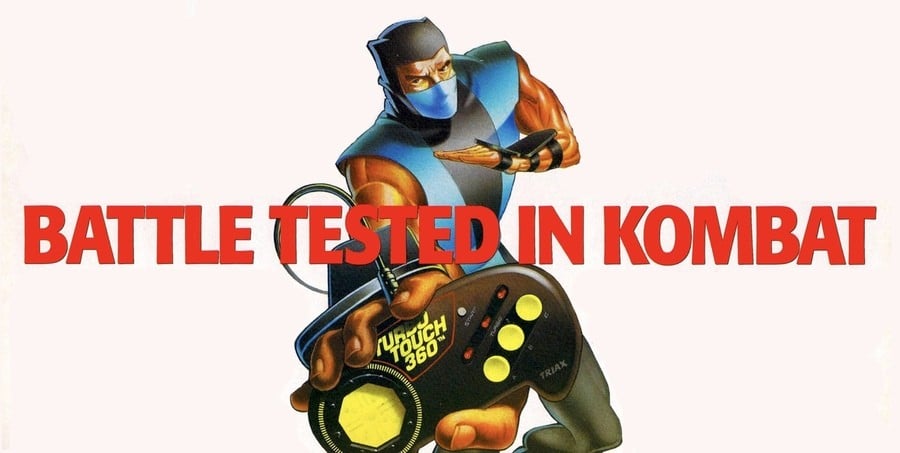
If you're old enough to remember the crazy video game accessories we were exposed to in the early '90s, then you might just recall a curious controller by the name of the Triax Turbo Touch 360.
This groundbreaking controller didn't use a traditional D-pad – which is essentially a plastic disc sitting on top of a rubber membrane – but instead featured a capacitive touchpad.
The pitch was that, because there were no moving parts, the Turbo Touch 360 was more precise and responsive, and it also cut down on the issue of blisters and "gamer's thumb" – so much so that it even got the blessing of orthopedic surgeon Dr. Robert Grossman. Diagonal movements were (allegedly) easier, and there was no need to press down on the pad, which supposedly made it more comfortable to use over prolonged periods of time.
Spotting a gap in the market dominated by one-on-one fighters, Triax took out advertisements in video game magazines proclaiming that the Touch Touch 360's "sensor plate" made pulling off special moves effortless, even going as far as to directly link the product to Mortal Kombat in one such promotional campaign.
The problem? The Turbo Touch 360 simply wasn't very good.
It was so bad, in fact, that IGN ranked it as one of the worst controllers of all time, pointing out that it was impossible to rest your thumb on the sensor plate without triggering a directional input, making it awkward to use. YouTuber Atomic Purple even made an exhaustive comparison between the Turbo Touch and an original Genesis controller in 2020, only to find that Triax's "better scores or your money back" claim simply didn't hold water.
Triax produced Turbo Touch controllers for the SNES, Genesis / Mega Drive, NES and PC, but it wasn't the only interface revolution the company had planned. In 1994, Triax spoke about its next project, a controller which would usher in "a new generation of games", according to Super Play magazine (as spotted by video game historian and Time Extension contributor John Szczepaniak).
"The controller is provisionally called the Multi-Function system, but Triax affirm that this name will change to something snappier nearer to the release," says the British publication in its January 1994 issue. "Development is underway for Multi-Function units for the Super NES and Genesis (or Mega Drive, in the UK). Most game characters move in two dimensions, viewed either from the side or above. But the new Triax controller will have two extra buttons that let the user have full 360° control over three dimensions."
This sounds similar to what Sony had initially intended with its PS1 controller, which has four shoulder buttons. Early reports in 1994 suggested that these would be used to manipulate the camera during gameplay.
Super Play added that Electronic Arts was already working on six games which would be compatible with the new controller, and that Capcom had also expressed an interest in it. Little else was revealed outside of the fact that the Multi-Function controller would be shown off at CES and that it would resemble a joystick rather than a joypad. It was also noted that Hornby would be handling distribution in the UK, with an expected cost price of around £39.99 – as much as an average full-price console game.

We've not been able to find any other reference to this controller online, which suggests it was cancelled before it was revealed. We've reached out to Andy Hiseman, the Hornby representative mentioned in the Super Play news story, but we haven't had a reply (to be fair to him, this was all a very long time ago, so he might not even remember).
As an aside, the Triax Technologies name lives on today, but via a totally unrelated company which specialises in tech for the construction industry. There seems to be little information online about the company's fate, which is remarkable when you consider how much noise it made about the Turbo Touch 360 in various publications back in the day.
Do you know anything about this potentially groundbreaking controller? Let us know in the comments.
